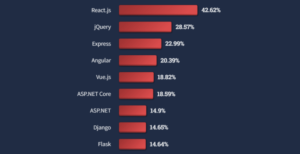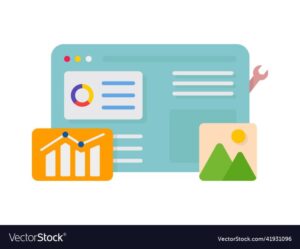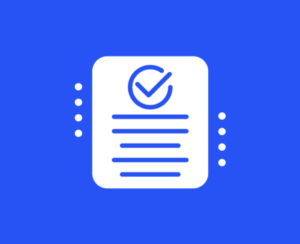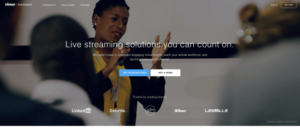
As remote work continues to flourish, ensuring robust Internet security for remote workers has never been more crucial. The shift to digital workplaces brings both versatility and vulnerabilities, making it essential to adopt proactive measures to safeguard information and maintain productivity. By understanding the tools and techniques available, remote workers can create a secure virtual environment that protects both personal and organizational data.
This overview will explore various strategies and tools tailored for remote workers, from virtual private networks (VPNs) to multi-factor authentication. By implementing these security measures, individuals can navigate the challenges of a digital workspace while keeping their information secure from potential threats.
Internet Security Measures for Remote Workers
In today’s digital age, remote work has become increasingly common, making internet security more crucial than ever. As employees connect to company networks from various locations, they expose themselves and their organizations to potential cyber threats. Implementing robust internet security measures is essential to protect sensitive information and maintain business integrity.
Importance of Using VPNs for Secure Connections
A Virtual Private Network (VPN) is a vital tool for remote workers aimed at ensuring secure internet connections. By encrypting data transmitted over the internet, VPNs shield users from potential eavesdropping and hacking attempts, especially on public Wi-Fi networks. The use of VPNs also masks the user’s IP address, adding an additional layer of anonymity and security.It is important to choose a reliable VPN provider.
Key features to consider include:
- Encryption Standards: Look for VPNs that utilize strong encryption protocols, such as AES-256, to safeguard data.
- No-logs Policy: A reputable VPN provider should have a strict no-logs policy, ensuring that user activity is not recorded.
- Connection Speed: High-speed connections are essential for seamless remote work, so consider VPNs known for their performance.
- Server Locations: A wide range of server locations allows users to access geo-restricted content and improves overall connection reliability.
Comparison of Different Antivirus Programs
Choosing the right antivirus program is critical in safeguarding devices used for remote work. Various antivirus solutions offer different levels of protection, features, and pricing. The following is a comparison of popular antivirus programs based on their features and effectiveness:
| Antivirus Program | Key Features | Price Range |
|---|---|---|
| Norton 360 | Real-time threat protection, VPN included, dark web monitoring | $39.99 – $89.99/year |
| Bitdefender | Multi-layer ransomware protection, VPN, and secure browsing | $29.99 – $89.99/year |
| McAfee | Identity theft protection, secure VPN, performance optimization | $34.99 – $119.99/year |
| Kaspersky | Advanced malware protection, secure connection, privacy tools | $29.99 – $89.99/year |
Each of these antivirus programs has unique strengths. For remote workers, selecting a solution that balances comprehensive protection and system performance is essential.
Best Practices for Creating Strong Passwords
Creating strong passwords is one of the simplest yet most effective measures to enhance security. A robust password should be complex enough to resist brute-force attacks. Here are some best practices for creating strong passwords:
- Length and Complexity: Use at least 12 characters, combining uppercase letters, lowercase letters, numbers, and symbols.
- Avoid Common Words: Steer clear of easily guessed words or phrases, such as “password” or “123456.”
- Unique Passwords: Use a different password for each account to minimize risk if one is compromised.
- Utilize Password Managers: Consider using password management tools to generate and store complex passwords securely.
In summary, adopting effective internet security measures is critical for remote workers. Utilizing VPNs, selecting the right antivirus software, and adhering to strong password practices can significantly reduce the risk of cyber threats.
Best Tools and Techniques for Enhancing Internet Security
In the current digital landscape, ensuring robust internet security is paramount for remote workers. As more individuals work from home, understanding and utilizing the right tools and techniques is crucial to safeguard sensitive information and maintain operational integrity. This section focuses on the best practices that can significantly enhance internet security for remote work setups.
Role of Firewalls in Protecting Remote Work Systems
Firewalls serve as the first line of defense in securing remote work systems. They monitor and control incoming and outgoing network traffic based on predetermined security rules. A well-configured firewall can effectively prevent unauthorized access to private networks while allowing legitimate traffic. Key functions of firewalls include:
- Traffic Filtering: Firewalls analyze packets of data and decide whether to allow or block them based on security policies.
- Intrusion Prevention: They can detect and respond to suspicious activities by blocking potential threats before they penetrate the network.
- VPN Support: Many firewalls offer built-in VPN (Virtual Private Network) functionality, which secures data transfer over the internet, thereby protecting sensitive information during remote access.
“Firewalls act as gatekeepers, managing network traffic to ensure only safe data enters and exits.”
Effective Spam Blockers and Their Functionalities
Spam blockers are essential tools that protect remote workers from unwanted emails and phishing attempts, which can lead to security breaches. These tools filter out unsolicited emails, helping to maintain a clean inbox and enhancing overall security.The functionalities of effective spam blockers typically include:
- Content Filtering: Analyzing the content of emails to identify and block spam messages based on specific s or patterns.
- Sender Verification: Checking the sender’s email address and reputation to determine whether to accept or discard messages.
- Heuristic Analysis: Utilizing algorithms to assess and identify spam characteristics, improving the detection of new or evolving threats.
“Effective spam blockers not only declutter your inbox but also act as a proactive defense against potential phishing attacks.”
Benefits of Multi-Factor Authentication in Securing Accounts
Multi-factor authentication (MFA) significantly enhances account security by adding additional layers of protection beyond just a password. By requiring more than one form of verification, it drastically reduces the risk of unauthorized access.The benefits of implementing MFA include:
- Increased Security: Even if a password is compromised, attackers cannot access the account without the second factor, which could be a text message code, an authentication app, or a biometric scan.
- Reduced Risk of Phishing: MFA makes it more difficult for attackers to gain access through phishing attempts, as they need more than just the password.
- Compliance with Regulations: Many industries require MFA to comply with security regulations, making it a necessary tool for businesses handling sensitive information.
“Multi-factor authentication is a vital strategy in fortifying your online accounts against cyber threats.”
Digital Marketing Considerations for Remote Work Security

In today’s digital landscape, remote workers are increasingly engaging with various marketing channels. While digital marketing can amplify a brand’s reach, it also presents unique security challenges that must be addressed. Understanding the implications of these digital platforms is essential for safeguarding remote work environments, particularly when leveraging social media, web design, and video marketing.
Social Media Platforms and Security Implications
Social media platforms serve as powerful tools for digital marketing, enabling brands to connect with audiences like never before. However, they also pose significant security risks. The open nature of these platforms can expose personal information and sensitive data, leading to potential breaches. Remote workers must be vigilant about privacy settings, recognizing that a single mismanaged post could compromise their organization.
To enhance security while using social media, consider the following practices:
- Regularly review and update privacy settings to limit data exposure.
- Utilize two-factor authentication to bolster account security.
- Be cautious of third-party applications that require access to personal information.
- Conduct regular training sessions on identifying phishing scams related to social media.
Secure Web Design for Digital Marketing Campaigns
When designing websites for marketing purposes, security should be a paramount consideration. A secure web design not only protects customer data but also fosters trust among users. Key guidelines for secure web design include the implementation of SSL certificates, which encrypt data transmitted between users and the website, protecting it from interception.Essential aspects of secure web design involve:
- Regularly updating software and plugins to mitigate vulnerabilities.
- Conducting security audits to identify and rectify potential threats.
- Utilizing strong, unique passwords for admin pages and databases.
- Implementing a web application firewall to monitor and filter traffic for malicious activity.
Video Marketing Security Measures During Streaming
The rise of video marketing has transformed how brands engage with audiences, but it also raises concerns about security during streaming. Live video broadcasts can be particularly vulnerable to unauthorized access, which could lead to damaging content exposure or brand reputation issues. To ensure video marketing security, consider these measures:
- Use encrypted streaming protocols to protect video content.
- Limit access to streaming links through password protection.
- Monitor and control audience participation to avoid inappropriate interactions.
- Perform a thorough risk assessment before livestreaming to identify potential vulnerabilities.
“Security in digital marketing is not just a matter of compliance; it’s an essential component of trust.”
Outcome Summary

In conclusion, prioritizing Internet security for remote workers is essential for maintaining safe and efficient work practices in an increasingly digital world. By harnessing the right tools, such as VPNs, firewalls, and effective password management, remote employees can significantly reduce their security risks. As we embrace this new era of remote work, staying informed and proactive about Internet security will empower individuals to thrive in their roles, ensuring both personal safety and the integrity of the organizations they represent.
Essential Questionnaire
What is a VPN and why is it important?
A VPN, or Virtual Private Network, encrypts your internet connection, making it secure and private. It’s crucial for remote workers to protect sensitive data from potential cyber threats.
How often should I change my passwords?
It’s recommended to change your passwords every three to six months, and immediately if you suspect any security breach.
Are free antivirus programs effective?
While some free antivirus programs offer basic protection, they may lack advanced features that are crucial for comprehensive security. Investing in a reputable paid version is often advisable.
What is multi-factor authentication?
Multi-factor authentication adds an extra layer of security by requiring two or more verification methods before granting access to accounts, making it much harder for unauthorized users to gain access.
How can I ensure my home network is secure?
Secure your home network by changing the default password on your router, enabling WPA3 encryption, and regularly updating your firmware to protect against vulnerabilities.





